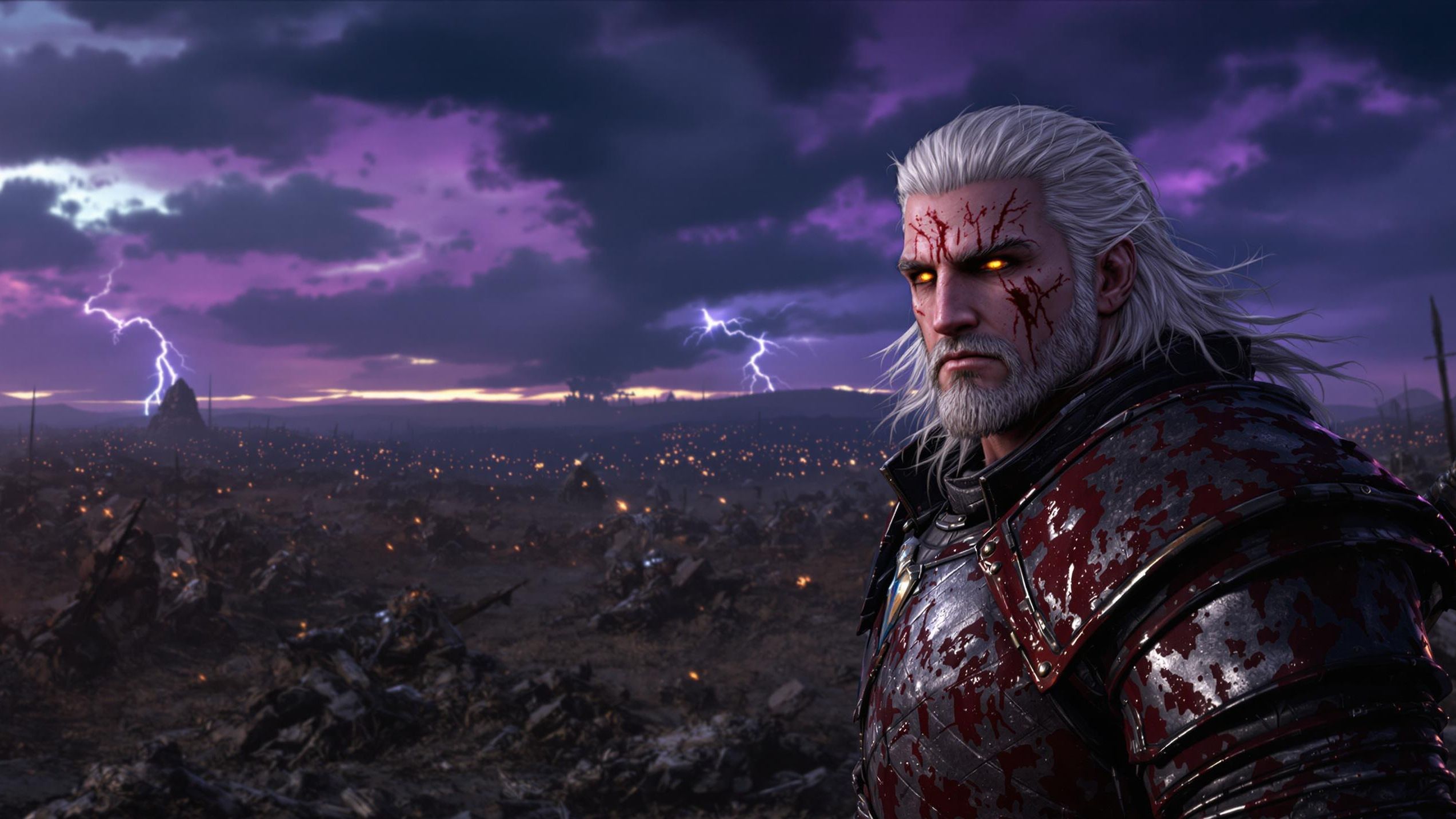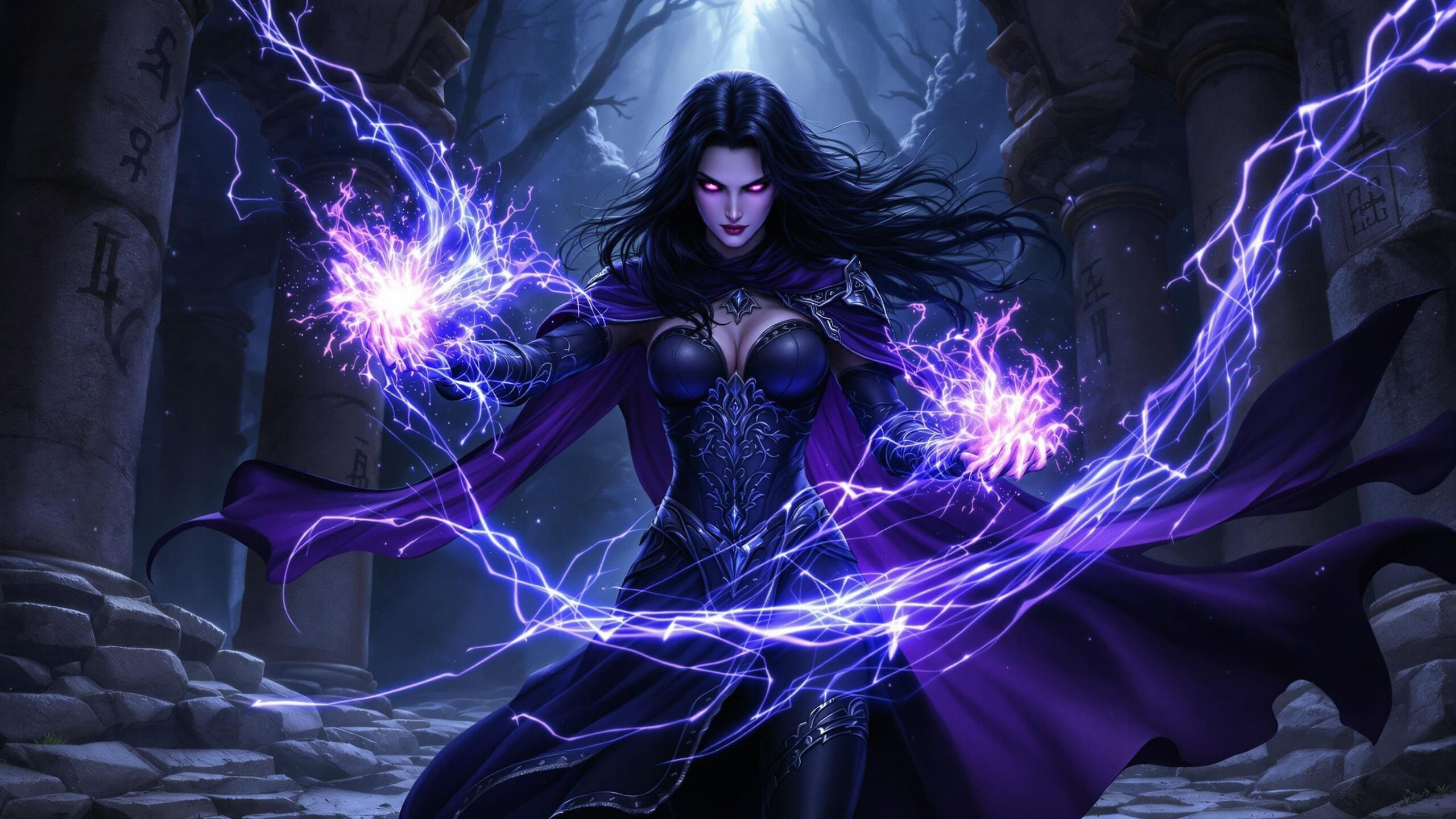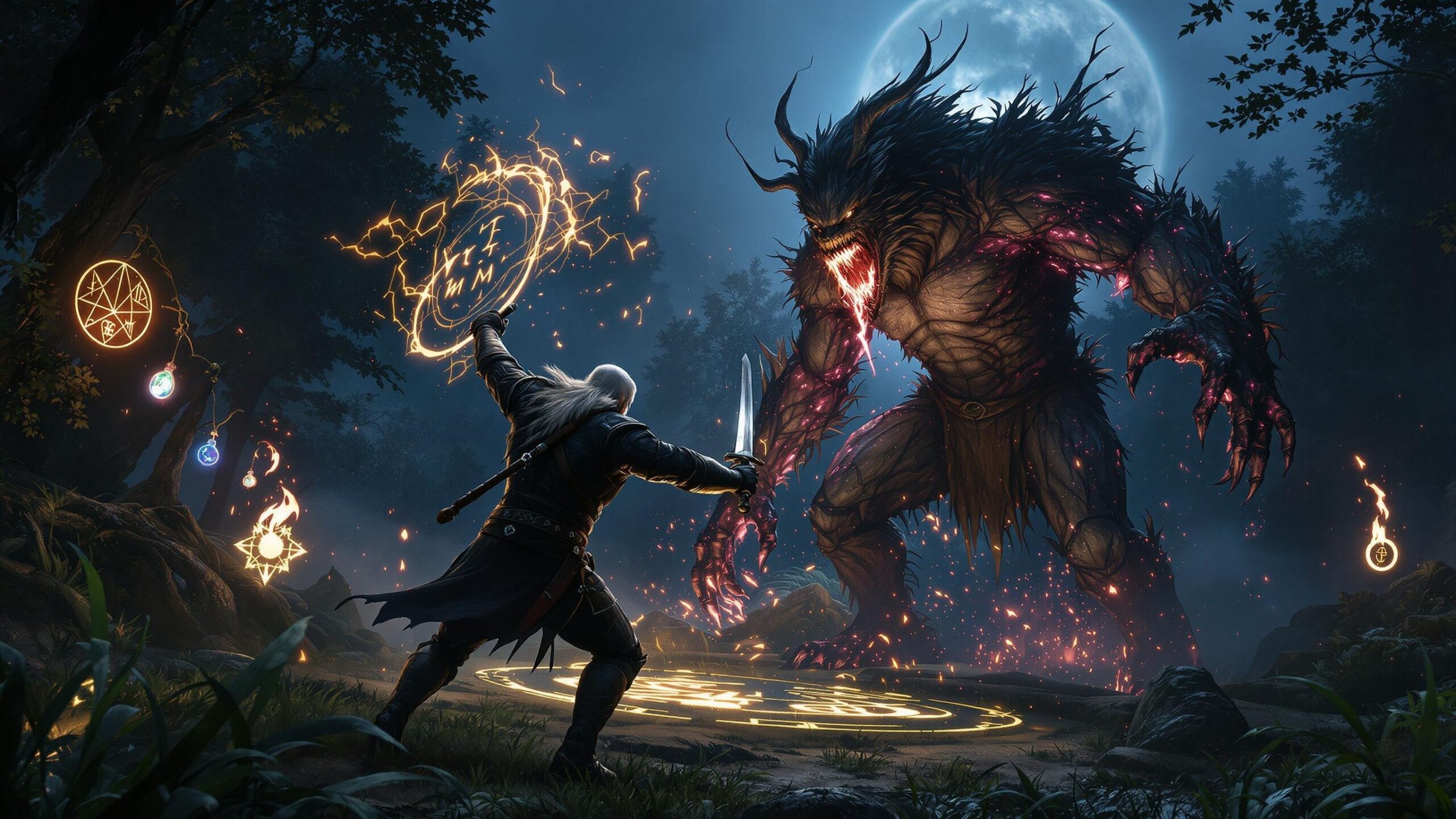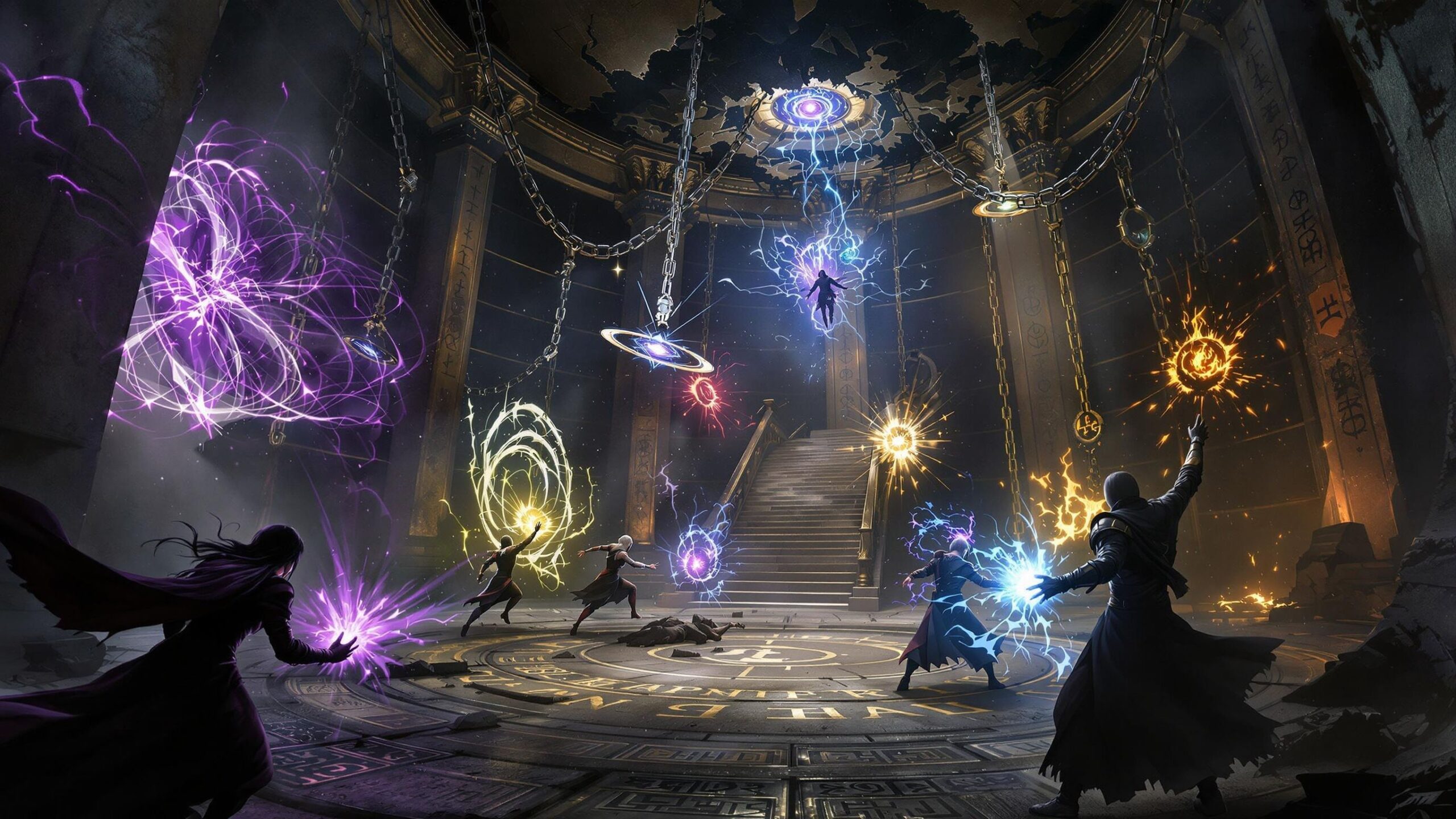Geralt of Rivia—mutant, monster slayer, philosopher with a sword—has carved out an unforgettable legacy in The Witcher universe. Whether in Sapkowski’s novels, CD Projekt Red’s games, or Netflix’s adaptation, Geralt’s moments of brilliance span from visceral battles to tender, emotionally complex decisions. He’s more than just a Witcher—he’s a man of conviction navigating a world where morality is never black and white. The following list honors the most iconic, impactful, and memorable Geralt moments that showcase his strength, wit, and heart.
#10: Geralt Slays the Striga
In The Witcher short story “The Witcher,” Geralt faces off against a terrifying striga—a cursed princess who’s turned into a monstrous creature. What makes this moment iconic isn’t just the harrowing combat, but the way Geralt chooses to confront the curse. Instead of simply killing the beast, he resolves to save her, enduring a brutal night locked in the crypt with the striga to prevent her from returning to her sarcophagus. The battle is raw, bloody, and desperate—Geralt is nearly torn apart. But it ends with a rare triumph of hope, as the girl reverts to her human form. This moment encapsulates what makes Geralt different from most monster slayers: he fights not for glory or coin alone, but because he wants to believe redemption is possible. It’s one of the earliest examples of his complexity—brutal in execution, but compassionate in intent.
#9: The Butcher of Blaviken Incident
Before Geralt earned worldwide fame as the White Wolf, he was branded the “Butcher of Blaviken.” This infamous moment, from both the books and Netflix series, highlights Geralt’s tragic role as a hero misunderstood by the world. Geralt is forced to choose between allowing Renfri and her men to massacre innocent townspeople or killing them himself. He chooses the latter, taking down the gang with swift, surgical violence in one of the most beautifully choreographed sword fights in Witcher history. Though he saves the town, the people recoil in fear and disgust at the carnage. Geralt’s face is stained with blood and sorrow. He walks away condemned for doing the right thing. This moment defines Geralt’s path—he lives in the gray, making impossible choices and paying the emotional cost, even when the world turns against him.
#8: Defeating the Higher Vampire Dettlaff
In The Witcher 3: Blood and Wine expansion, Geralt faces one of his deadliest foes: Dettlaff, a Higher Vampire with terrifying strength and regenerative abilities. The battle is visually stunning, taking place in a nightmarish dream realm filled with twisted imagery and Gothic horror. Dettlaff’s abilities outstrip almost every monster Geralt has ever faced. Yet Geralt prevails—not just through swordsmanship, but through a deep understanding of his foe’s motivations. There are multiple paths players can choose, but regardless of the outcome, Geralt’s confrontation with Dettlaff is chilling, philosophical, and layered with moral ambiguity. It’s not just a boss fight—it’s an existential reckoning with what monsters really are. This moment elevates Geralt to more than a fighter; he’s a negotiator, a detective, and a judge in a world where those roles often blur.
#7: Geralt and Ciri’s Snowball Fight
Not every legendary moment involves blood and steel. Sometimes, it’s a simple snowball fight. In The Witcher 3: Wild Hunt, after countless quests, grim revelations, and dangerous pursuits, Geralt and Ciri share a heartwarming father-daughter moment in Kaer Morhen’s courtyard. They toss snowballs, laugh, and enjoy a rare moment of peace. It’s a beautifully human scene that contrasts with the darkness around them. This moment proves that Geralt’s greatest victories aren’t just against monsters—they’re the ones where he preserves joy, love, and connection. For a man who has known only war, this brief reprieve reminds us why he fights. It’s a reward not just for the player, but for Geralt himself. He’s more than a mutant—he’s a father, and he’s found his family.
#6: Holding Back the Wild Hunt at Kaer Morhen
When the Wild Hunt finally storms Kaer Morhen, the battle is one of the most intense in the franchise. Geralt leads a coalition of allies—fellow Witchers, mages, and warriors—against the spectral invaders. His leadership, strategy, and bravery are all on display. But the emotional core lies in the stakes: Ciri’s life, and the safety of Kaer Morhen, the only home Geralt has ever known. He stands at the center of chaos, wielding steel and sign alike, taking down wraiths, teleporting enemies, and rallying his friends. His confrontation with Imlerith and later Caranthir showcase both power and poise. This is Geralt at full tilt—not just a lone wolf, but a commander. And yet, it’s the loss of Vesemir in this battle that grounds the moment. Geralt mourns, but he endures. As always, he survives, scarred but resolute.
#5: Geralt Battles the Crones of Crookback Bog
Few moments in The Witcher 3 are as haunting and mythologically charged as Geralt’s encounter with the Crones of Crookback Bog. These grotesque, ancient beings—Weavess, Whispess, and Brewess—are more than just monsters. They’re remnants of primal magic and manifestations of the Continent’s darkest folklore. Depending on the player’s choices, Geralt may confront and slay all three Crones in a surreal, violent showdown that blends horror with poetic justice. The Crones have long tormented the children of Velen, manipulated fate, and even plotted against Ciri. Geralt facing them is not just a fight—it’s a symbolic moment of justice for an entire region. What makes this even more powerful is Geralt’s fury when he learns they tried to harm Ciri. His battle becomes personal, primal. He fights not just as a Witcher, but as a protector, and he tears through ancient evils without hesitation.
#4: Geralt’s Final Duel with Eredin
The climax of The Witcher 3 pits Geralt against Eredin Bréacc Glas, the King of the Wild Hunt. It’s the final battle of years of build-up, a face-off between the White Wolf and the spectral commander of death itself. Eredin is a fearsome warrior, wielding powerful magic and commanding legions of wraiths. Their fight is set against the backdrop of a collapsing world, with portals and ice storms shattering the battlefield. But what truly defines this duel is Geralt’s unwavering determination. Eredin has chased Ciri across worlds, destroyed lives, and threatened the balance of reality. Geralt’s resolve—fueled by love, loss, and loyalty—is what lets him triumph. He doesn’t need grand speeches. His blade speaks for him. This fight isn’t just a spectacle—it’s the catharsis of an entire journey. And when Geralt stands victorious, battered but unbroken, it’s clear he’s more than a hunter. He’s a hero.
#3: “Evil Is Evil” Speech
In The Last Wish, one of the most quoted moments in the Witcher canon occurs when Geralt debates the concept of lesser evil. Faced with a moral dilemma, he refuses to take part in what he sees as a manipulated choice between two wrongs. “Evil is evil,” he tells Stregobor and Renfri. “Lesser, greater, middling… makes no difference.” It’s a defining declaration of Geralt’s ethos. In a world constantly asking him to choose sides, Geralt tries to remain neutral, clinging to some moral compass even in the face of impossible odds. This moment reveals his inner conflict—he’s not just a blade for hire, but a man trying to maintain his humanity in a world that makes it nearly impossible. This speech, echoed across games and the Netflix series, has become a signature of Geralt’s character. It’s not flashy. It’s not violent. But it is powerful, because it lays bare the soul of the White Wolf.
#2: Geralt and Yennefer’s Djinn Moment
One of the most emotional turning points in both the books and The Witcher 3 is Geralt’s decision to release Yennefer from the magical bond they share—originally caused by a wish he made to a djinn. Though the wish tied their fates together, Geralt never knew if Yennefer’s love was real or magically influenced. After years of complex romance, betrayal, and longing, he finds another djinn and uses it to sever the magical connection. The moment is stunning in its vulnerability. Geralt risks losing the one person he truly loves, just to give her freedom. It’s one of his most selfless acts, and depending on the player’s choices, it can lead to a reaffirmed love that is now real and unbound. It’s a deeply human moment, showing Geralt’s emotional intelligence, maturity, and capacity for sacrifice. He’s not afraid to lose her—he’s afraid she never had a choice.
#1: Geralt Finds Ciri on the Isle of Mists
After hours of gameplay, near-apocalyptic stakes, and years of lore, Geralt’s quiet reunion with Ciri on the Isle of Mists stands as the most emotionally charged and beautifully restrained moment in The Witcher 3. You navigate a fog-shrouded island, fighting off harrowing foes, carrying the weight of your entire journey. And then—there she is. Ciri, pale and lifeless looking, lying on a bed. Geralt kneels beside her. He touches her. Silence hangs. Then her eyes open. “I had a dream about you,” she says. “We were both in Kaer Morhen.” It’s not a battle, not a chase, not a confrontation—it’s a whisper in a storm. For Geralt, who has sacrificed everything, who has lived through fire, frost, and blood, it’s a quiet victory of love and fate. This moment captures the soul of Geralt of Rivia. He is not defined by the monsters he’s slain, but by the people he’s saved—and loved.
Geralt of Rivia has walked through fire, cut through legends, and carried the weight of a broken world on his shoulders. But his most powerful moments aren’t always measured in kills or quests—they’re found in his choices, sacrifices, and quiet acts of compassion. These ten moments reflect not just the warrior he is, but the man he strives to be. Through every striga slain, every moral line walked, and every life touched, Geralt proves that being a Witcher means far more than just wielding a sword—it means carrying a soul in a world that wants you to forget you have one.




